|
JULY 2024 NEWSLETTER MESSAGE FROM EXECUTIVE DIRECTOR WENDY MAGEE Dear Friends and Supporters, As we step into July, we join the nation in celebrating National Make a Difference for Children Month. This month serves as a powerful reminder of the significant impact we can have on the lives of children in foster care through our collective efforts and unwavering commitment. With our fiscal year (July 2023 - June 2024) coming to an end, I am delighted to share that CASA Jefferson has much to celebrate. This year has been marked by remarkable achievements and milestones that the dedication and hard work of our advocates, staff, and supporters. During this fiscal year, we successfully assigned 32 new children to a dedicated volunteer advocate, bringing the total number of assigned children to 110, supported by 70 passionate volunteers. We also welcomed 18 new advocates who were sworn in, further strengthening our ability to serve the children in our care. Our advocates have collectively logged an impressive 2,338 case hours, demonstrating their commitment to ensuring the best outcomes for these vulnerable children. Thank you for all you do for CASA Jefferson. Your support, dedication, and passion for our mission make these accomplishments possible. As we look forward to the new fiscal year, I am excited about the opportunities that lie ahead. We are thrilled to announce a new collaboration with the Jefferson Parish Juvenile Court Family Preservation Program. This partnership will enable us to have a bigger impact on the families we serve, helping to keep families together and providing the necessary support to prevent children from entering the foster care system. Additionally, we are expanding our reach through enhanced marketing efforts, allowing us to connect with more people in the community who share our commitment to making a difference in the lives of children in foster care. We deeply appreciate the support of our Jefferson Parish Juvenile Court Judges, our dedicated advocates, and all our supporters. Your unwavering commitment to CASA Jefferson empowers us to continue our vital work and make a lasting impact. Let us continue to make a difference in the lives of children in foster care. Together, we can provide them with the hope, stability, and opportunities they deserve. --Wendy We are thrilled to welcome our four newest advocates to CASA Jefferson: (left to right) Regan, Wade, Mishelle, and Debby! Thank you for stepping up to be a voice for children in foster care. Your dedication and commitment are truly inspiring. A special thank you to Judge Barron Burmaster for conducting the swearing-in ceremony. Together, we are making a difference in the lives of children. See below for the link to purchase CASA JEFFERSON 2ND ANNUAL GALA tickets: https://www.casajefferson.org/change-a-childs-story-gala.html JULY BIRTHDAYS CASA VOLUNTEERS Alice Reese Christie Bearden Jean Curran Julie Williams Rebekah Brocato Zoe Vallotton CASA JEFFERSON's Mission is to break the cycle of child
abuse and neglect through volunteers advocating for safe, nurturing, and permanent homes for foster children in our community. CASA JEFFERSON's Vision is to have volunteers recruited, trained and assigned to every child in the foster care system in Jefferson Parish. As of July 1, 2024, we have 42 children waiting for a volunteer to advocate for them. If you know anyone who would be interested in becoming a volunteer, have them call our office (504 533-8757) or visit www.casajefferson.org. CASA JEFFERSON |
Click to upload Footer Background below
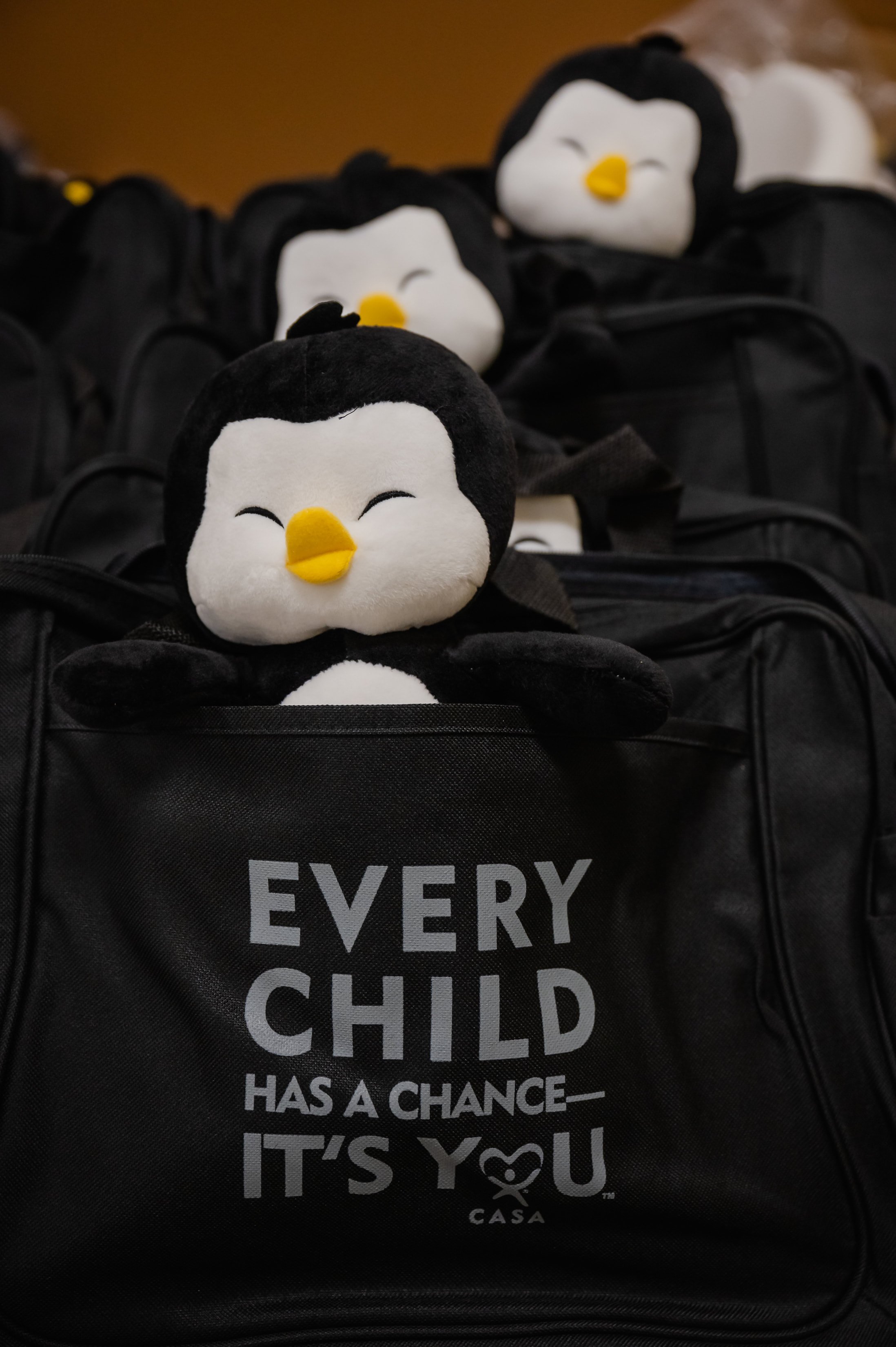






























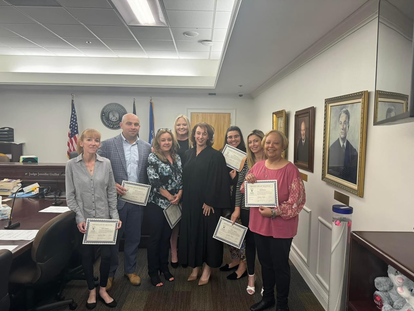
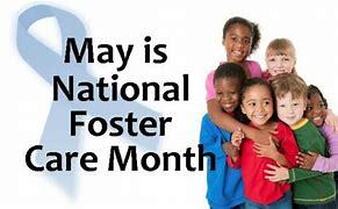











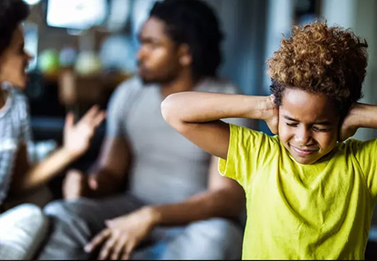



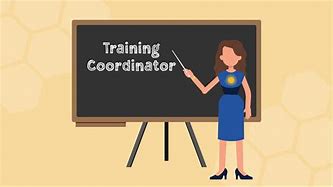


































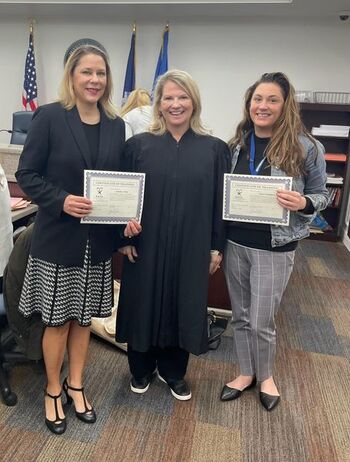







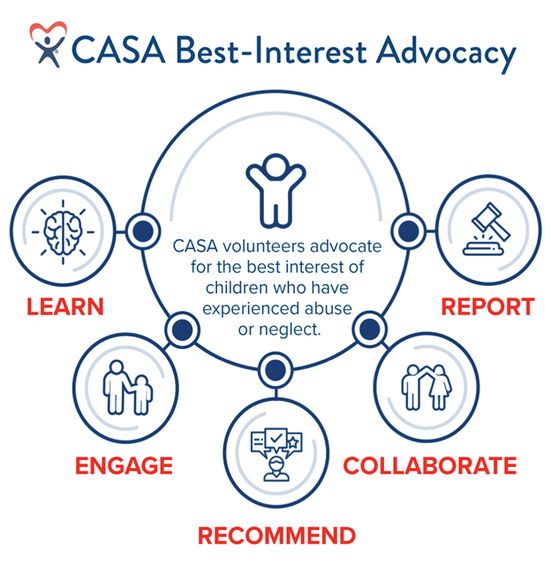





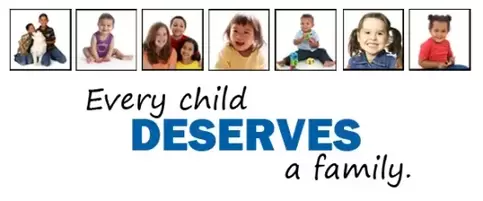

















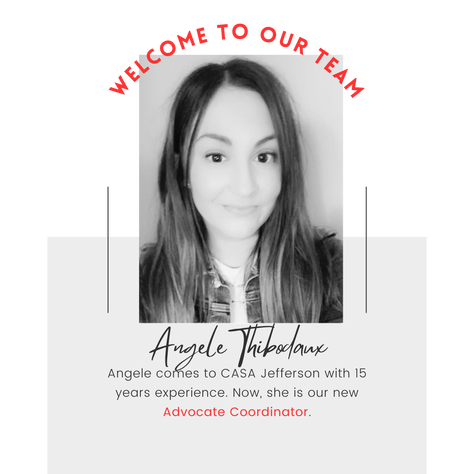






 RSS Feed
RSS Feed



